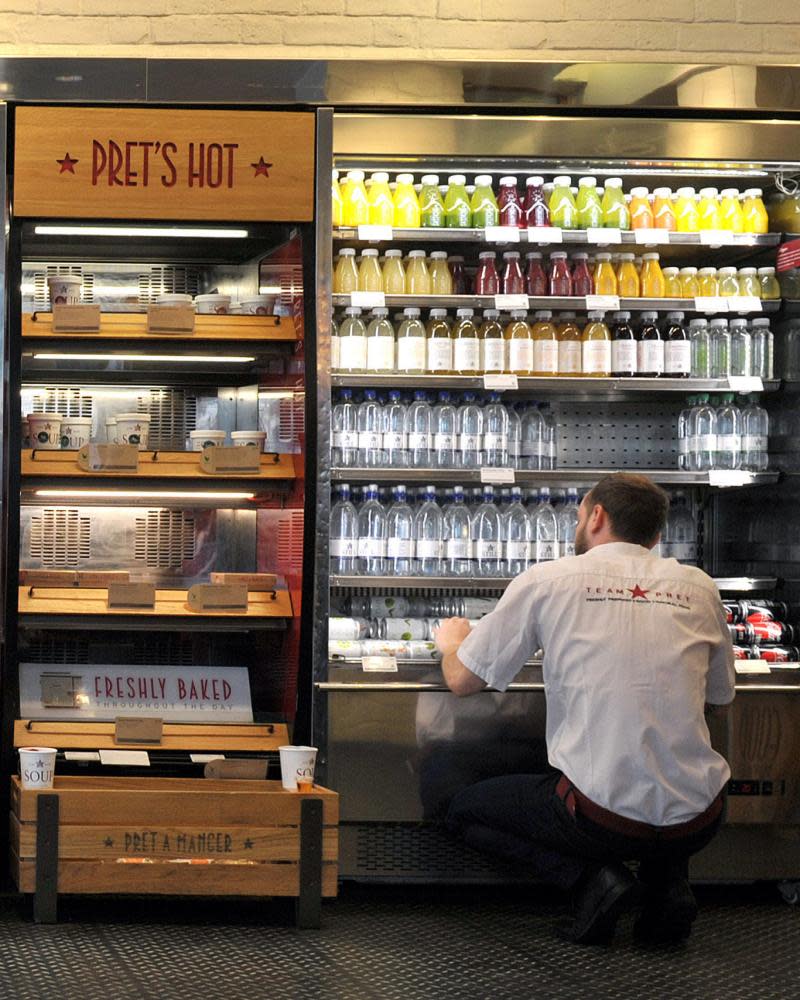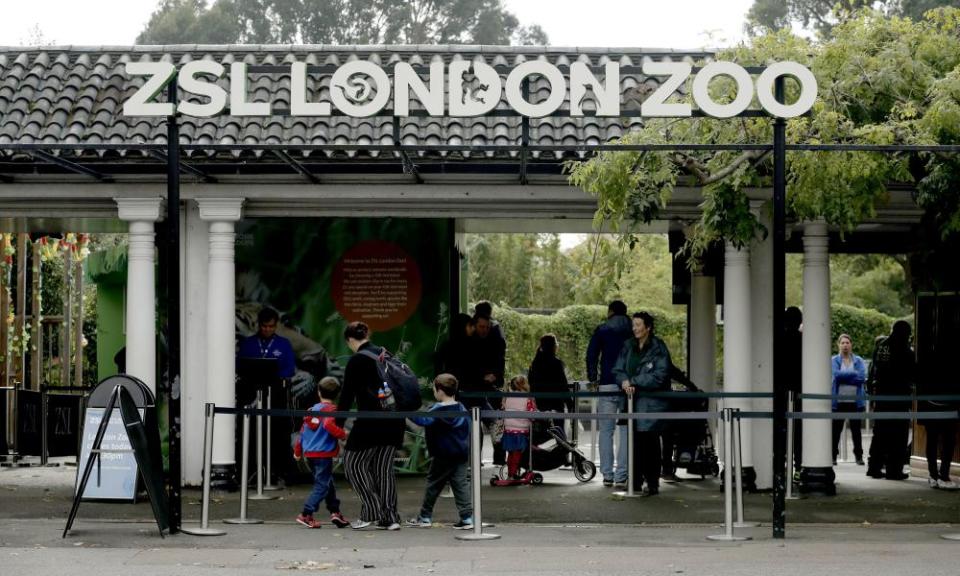High-street outlets move to ditch plastic amid environmental concerns

A growing number of outlets selling food and drink in the UK are taking action to ditch plastic amid deepening concern about its effect on the environment, with drinking straws and bottles among items being phased out.
Pret A Manger has become the latest to take action, announcing that it has installed taps dispensing free filtered water and started selling empty glass bottles in its three vegetarian stores. The scheme is due to be rolled out to branches in Manchester from the end of October.
The move follows a flurry of schemes introduced by businesses and charities, from pub chain Wetherspoons to the Zoological Society of London, to curb plastic waste amid rising concern over the vast tide of containers, bottles and other paraphernalia washing up around the world.
While plastic bottles of water will still be available at the Pret stores, the company says the goal is to explore whether customers will take up the plastic-free option.
“We’ve been really surprised and encouraged by the hugely positive response on social media – we’ve even sold quite a few glass bottles already,” said Caroline Cromar, the brand director of Pret. “We’ll be listening carefully to feedback from our customers and shop teams before we decide on the next stage.”
The move, according to Pret, comes from a growing desire to tackle the impact of plastic waste on the environment.
A Guardian investigation this year discovered that a million bottles of water are bought worldwide every minute, while recent research has revealed that of the 6.3bn tons of plastic waste produced between 1950 and 2015, almost 80% has ended up in landfill or in the environment – including the oceans. Plastic contamination is now found in everything from tap water to sea salt.

Pret is not alone is attempting to wean consumers off plastic. Last month Wetherspoons announced that it would stop using plastic drinking straws from 2018, while Borough Market in London promised this summer that it would end sales of single-use plastic bottles and install public drinking fountains.
Meanwhile Selfridges, which announced in 2015 that it would stop selling single-use plastic water bottles, has now gone a step further. A spokesperson said that it, too, recently phased out the use of plastic straws in its eateries and restaurants, adding that a permanent water fountain will be installed in its London store in 2018.
It is not only high-street retailers that are taking action. The media company Sky recently revealed that it is removing disposable plastic – including bottles of water and cups – from its canteen.
UK visitor attractions are also tackling the issue. “Obviously as a conservation charity the subject of plastic in the ocean is very close to our hearts,” said Kathryn England, the head of commercial at ZSL, which runs London Zoo and Whipsnade Zoo in Bedfordshire.
Since the summer of 2016 ZSL has no longer sold single-use plastic bottles of water at its London and Whipsnade sites, instead installing water fountains and embracing alternative packaging.
The move, said England, was not without difficulties. “There is not that much out there that isn’t plastic at the moment,” she said. “One of the big challenges that we have as a zoo is that we can’t have glass on site for safely reasons.”
In the end, ZSL opted for cardboard cartons of plain and flavoured water with polyethylene terephthalate (PET)-free caps, as well as resealable cans of both still and sparkling water.
The transition, England said, not only stacked up commercially, but has gone down well with the 2m visitors that visit the zoos every year. “We’ve not had a single element of pushback since we rolled [the scheme] out,” she said, adding that ZSL had taken steps to explain the reasoning behind the move to visitors.
With its mission accomplished, England says ZSL is now going further. “By the end of the year, our entire drinks range across our two zoos will be 100% single-use plastic bottle free,” she said, adding that finding healthy and non-carbonated drinks with plastic-free packaging was no mean feat.

But not everyone is following suit. A spokesperson for Costa Coffee responded to Pret’s move by pointing out that free water was already available in its stores. “Our baristas are more than happy to provide glasses of tap water to our customers on request,” they said.
However, while a recent survey found that 61% of people “wouldn’t pay for bottled water if tap water was available”, 37% said they would be embarrassed to ask for free tap water – even if they were buying items at the same time.
England said she welcomed the announcement from Pret, but added that manufacturers and those in the field of waste management needed to facilitate the use of plastic-free options, including compostable corn-starch containers.
“I think the more brands like this can come on board, the more pressure that puts on the big manufacturers to actually switch over and start creating and developing innovation that is going to come up with an alternative solution to plastic that will work for everybody,” she said.

 Yahoo News
Yahoo News 
